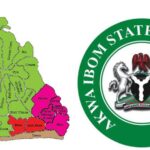*shortlists 8,800 applicants
The Petroleum Technology Development Fund (PTDF) has shortlisted 8,800 candidates from over 26,000 applicants for this year’s Overseas Scholarship Scheme (OSS).
However, the Fund has excluded the Southeast from hosting any of the six interview sessions for applicants across the country, citing security challenges.
The OSS is an annual programme that awards scholarships to Nigerians for MSc and PhD studies in partner universities in the United Kingdom, Germany, France, China and Malaysia.
Speaking during the opening of this year’s selection process in Abuja on Monday, the PTDF Manager in charge of OSS, Mr. Bello Mustapha, said it started in December 2021 and the shortlisted candidates interviewed across centres in Abuja, Port Harcourt, Ibadan, Kaduna and Bauchi.
He explained further that “we are here for the 2022/2023 academic session, we have advertised the scholarship and we have called on people to apply, people have applied, over 26,000 people applied for the scholarship and over 8000 were selected to come and do the interviews.
“We conduct the interviews in the six geopolitical zones of the country but we are doing in five geopolitical zones of the country this year because of the issues of insecurity in the Southeast.
“So we are using Ibadan, we are using Bauchi, we are using Port Harcourt, we are using here and we are using Kaduna”.
Mustapha also clarified that candidates in the Southeast have been advised to pick centres outside the region to enable them participate in the interviews.
According to him, “we sent them mails to choose any centre. In all the geopolitical zones we have, you can actually choose any centre that you want. You may be in the Southeast and you decide to come and do it in Abuja, or you can even go to Bauchi”.
While declining to indicate the exact number of candidates that would be finally selected for the scholarship award, he said the number would be dependent on the budget of the Fund.
He noted that at the end of their training abroad, the scholars were expected to return to the country to work in the petroleum industry and contribute their quota to growth of the Nigerian economy.


